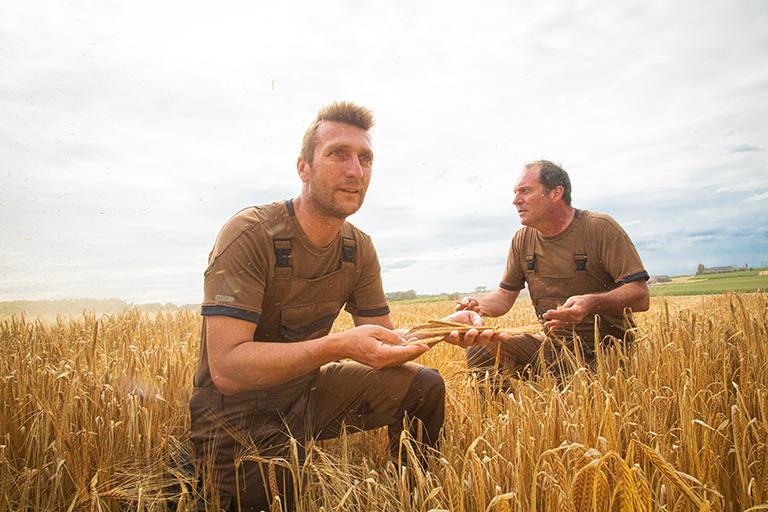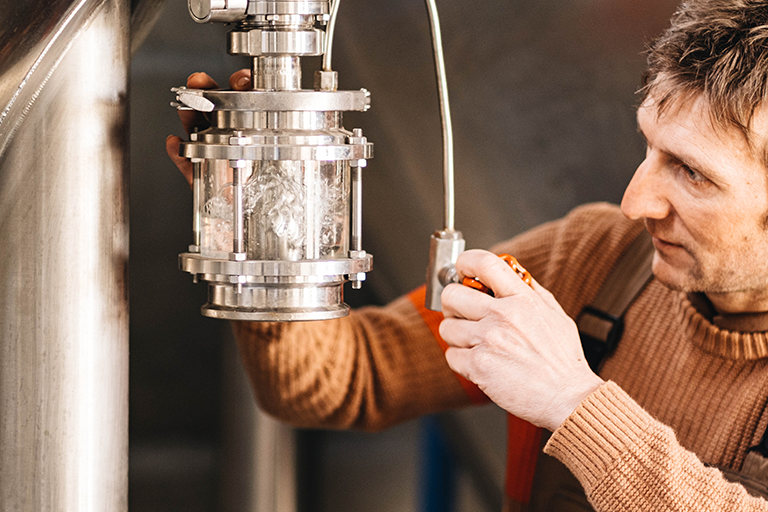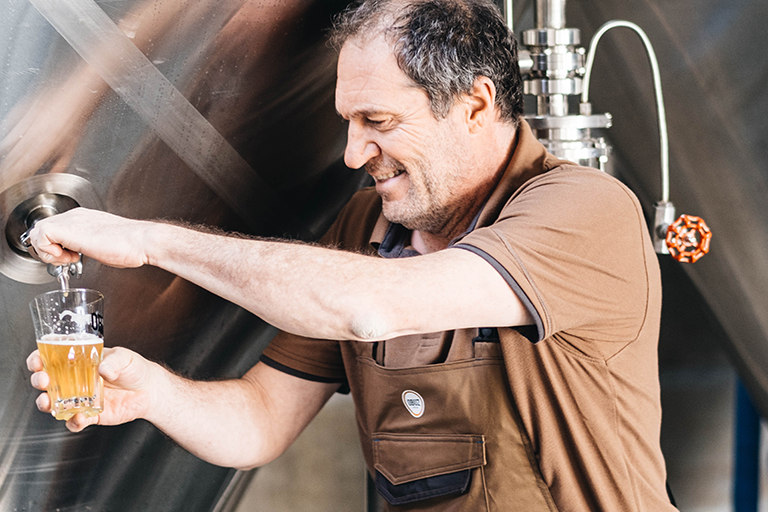Brewed in
Flanders' fields
The gold-tinged Flemish corn fields: it is and will forever remain a sight to behold. Our land, our pride, our flavours…
A unique
brewing process
Obuz is brewed in time-honoured tradition with a keen eye on the artisan ways of yesteryear. What makes the brewing process of the beer so special is the fact that the chain opens and closes on and around the farm. The barley grown on the farm’s own fields, the brewage made and bottled on the farm.
At the helm of
the brewing process
from start to finish
Sowing and harvesting the Lemaire fields
Everything starts out with seeding the corn grains on the Lemaire family’s fields. Once seeded, the barley grains adopt the unique character of the Passchendaele soil, with the crop absorbing the soil moisture enabling the germ in the grain to grow.
Obuz uses winter barley, which means the crop is harvested at the height of summer. Once the crop has been gathered in, the barley is left to dry.

Brewing: a delicate craft
Between the time of harvesting the barley and the first swig of beer, a lot of intermediate steps need to be rigorously covered first: from gristing or milling the malt, across mashing or allowing the wort to infuse, filtering and rinsing, boiling, hopping and allowing the mixture to cool down to the point where the yeasting process can get under way. Every single step is crucial and performed in accordance with the rules of the art.

Bottling
After the ‘secondary fermentation’, also known as lagering, the beer is bottled, with the barley juice continuing to ferment inside the bottle … It is during this final stage that the flavours continue to develop, whereby carbonic acid gas is produced. To allow the beer to mature under optimum conditions, the master brewer uses a heat-preserving chamber. After being left to rest for a while, the beer is ready to imbibe.

Belgium farm brewery beer
Obuz is the first true Belgian farm brewery beer, for good reason. The main ingredient, the barley, takes root in the fields of the Lemaire family, wholly absorbing the characteristics of the Flemish soil. Once fully matured, the farmer harvests the barley before embarking on the next steps as part of the brewing process at the farm.
The residual products deriving from the harvest, are collected by farmers from the local area. This stops the fruits of the land from going to waste and keeps the brewing process local. Obuz is brewed in accordance with the principles of the farmer, with a keen eye on artisanship, with daring and true craftsmanship.
